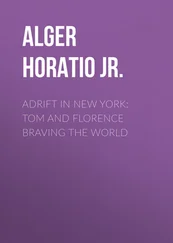That was the great weakness of the organ. Without the air that the bellows treader pumped into it with his feet, it remained silent. ‘By the way …’ Bach added, ‘I’m from Eisenach.’
‘From Eisenach?’
‘I was born there.’
‘I wasn’t born there,’ the Lion said, with regret in his voice. ‘My father was, not me. – What’s the name?’
Now I’ve got him , thought Bach. His family had a good name, way beyond Thuringia.
‘Johann Sebastian Bach,’ he spluttered, ‘son of Ambrosius Bach, town musician in Eisenach, nephew of Johann Christoph Bach, organist in Eisenach, brother of Johann Christoph Bach, organist in Ohrdruf, brother of Johann Jakob Bach …’ He didn’t get any further. He saw how the Lion steadied himself by grabbing with his hand one of the pillars that supported the nave; saw how, with his other hand, he tore open his shirt and massaged his heart and heard how he panted for air, making a deep noise that was accompanied by high harmonics. He wondered if he should go to him and help but, for some reason, he held himself back.
‘Bach?’ whispered the Lion in a barely audible voice. ‘Bach?’
Bach nodded. ‘Yes. Bach.’
‘Bach?’ the Lion asked again, weakly. And then, all of a sudden, a jolt went through the black-clad figure. Johann Jacob Löwe let go of the pillar that supported him and the church, shook his bony hands towards heaven, and shouted: ‘Bach! Bach! Bach! Everywhere in Saxony – everywhere in Thuringia – everywhere you look! Town Musician Johann and Cantor Johann, Kapellmeister Johann and Organist Johann, Johann this and Johann that – all positions are taken, all filled by Bach, Bach, Bach! And you have the audacity to visit me , the Lion of Eisenach, here in my church, and ask for lessons?! Away with you! Out! And the Devil be with you, Johann whatever Bach!’
The Devil be with you. There was something peculiar about such curses. Whether or not you believed the person issuing the curse to have magical powers, it left you quite unsettled. Bach railed against his fate like never before in his life. But when Erdmann asked him what the matter was with him, he said, Oh, nothing, or, I don’t know. Probably just a case of black bile. He endured it for three weeks, then he couldn’t stand it any longer and began to talk.
Erdmann, whom the three days’ detention had taught a lesson in humility, listened patiently and refrained from any ridicule when Bach finally spoke. He doesn’t believe in the power of the curse, he said, he doesn’t even believe in the Devil. He would not entirely disavow the existence of God, but the Devil he believes to be a mythical creature. God – should He exist – has completed His work and now only acts through the laws of His creation – gravity, for example. Ergo: Bach should be glad that the Lion of Eisenach did not become his teacher. Somebody who thinks and acts like that can’t be a role model, right?
Basically Bach agreed.
Why doesn’t he go to Böhm and ask him for lessons?
No, said Bach. That was impossible. He didn’t have the courage before; more so than ever now that even the Lion has rejected him.
Why?
He couldn’t explain, said Bach. It’s just how it was.
‘Oh well,’ Erdmann said resignedly, unwilling to push the matter further.
Nothing was solved by this, except perhaps that Bach now asked himself whether the Devil existed or not. After all, Dr Luther at the Wartburg had thrown an inkwell at the Devil; albeit he hadn’t hit him.
Three days after their conversation, Erdmann came to Bach and stated they would now go for a walk.
‘Not now,’ said Bach. ‘I have to study.’
‘Yes, now,’ insisted Erdmann.
‘Where to?’
Erdmann said he’d like to see the castle. He could that on his own, said Bach.
‘Oh, just come,’ said Erdmann. ‘ Allez! ’
They left the school building, walked past the Church of Our Lady and came to the castle. The Prince had just had it built as a secondary residence. Erdmann made a few comments on the architecture, which he thought was too clunky and not very elegant. Then he walked on.
Alongside him, Bach was deeply lost in thought. In his mind, he just had come up with the question as to whether it would be possible to play a fugue for six voices. And, if so, whether you could play one for seven voices as well, or for eight voices? Where was the limit?
They came into the Wasserviertel, where the boatmen lived and made such a racket in their taverns. It smelled of fish and sour pickles. Erdmann asked whether Bach had heard that Russia had made peace with the Ottoman Empire.
Yes, Bach said, he’d heard the news.
And could he imagine what that meant?
‘Peace is peace,’ said Bach. ‘It means the absence of war.’
‘Wrong,’ said Erdmann. ‘It means preparation for the next war. The Tsar has made peace with the Ottomans only in order to start another war against the Swedes.’ Incidentally, he added, he was a great admirer of the Tsar, who would transform Russia into a modern empire.
Bach stopped in his tracks and looked at Erdmann with suspicion.
‘What’s the matter?’ said Erdmann. ‘Come on.’
No, said Bach. If Erdmann was planning what he suspected, he wouldn’t take another step. Not for anything in the world.
He shouldn’t make such a fuss, said Erdmann. They had an appointment.
An appointment? An entire swarm of bumblebees suddenly buzzed around in Bach’s stomach. An appointment! And it was obvious with whom! Erdmann had lured him into a trap, but it hadn’t snapped shut yet. Not yet!
Would he kindly stir himself, said Erdmann.
No, said Bach, under no circumstance. His heart was beating like mad. His knees turned to jelly. Reluctantly, he allowed Erdmann to pull him forward, step by step, towards St John’s Church. When, shortly afterwards, they stood in front of the master, he couldn’t utter a single word.
Georg Böhm had a wide face with full lips, something of a pug nose, and kindly eyes, which now gazed on Bach expectantly. His full grey hair fell way over his ears. ‘So you’re from Ohrdruf?’ he asked.
Bach nodded.
‘Well, then we’re compatriots,’ said Böhm. He was from Hohenkirchen, near Ohrdruf, he said, and actually knew Bach’s brother, Johann Christoph, even if only by name. But enough talk for now. The bellows treader was at his post. They could start right away.
‘What shall I play?’ asked Bach.
Whatever he liked, said Böhm. Perhaps one of his own compositions? Or something by Pachelbel? His brother had studied with Pachelbel, hadn’t he?
Knees trembling, Bach climbed up the stairs to the gallery and sat down on the seat. He pulled the necessary stops, took a deep breath and began with a capriccio by Pachelbel. He added a few harmonious variations, had the organ swell up and then become soft again, very soft, before he filled it with life once more.
‘Hmm,’ said Böhm, as the last note was fading away.
I knew it , thought Bach. I’m not good enough for him .
‘Do you also have a composition of your own?’ Böhm asked. ‘Maybe a chorale or a sonata?’
‘I composed a toccata some time ago,’ suggested Bach. ‘I could play that.’
He began with three ringing notes, an octave apart, followed by a diminished seventh chord, playing after that fast, virtuoso musical figures across the manuals with both hands. He was still not satisfied with the toccata, not by a long shot; he would play it again and again, and continue perfecting it, but what he was playing now was what he was able to play now – more was simply not possible at the moment.
‘This should be followed by a fugue,’ said Böhm.
‘I could play one by Pachelbel,’ Bach replied.
Читать дальше












